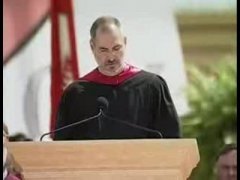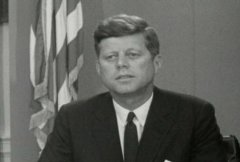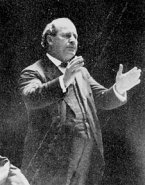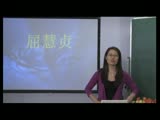Abortion is treated differently.
Of course there are differences both in degree and quality between abortion and some of the other religious positions that the Church takes: Abortion is a matter of life and death and degree counts. But the differences in approach reveal a truth, I think, that is not well enough perceived by Catholics and therefore still further complicates the process for us. That is, while we always owe our bishops' words respectful attention and careful consideration, the question whether to engage the political system in a struggle to have it adopt certain articles of our belief as part of the public morality is not a matter of doctrine. It is a matter of prudential political judgment. Recently, Michael Novak put it succinctly. "Religious judgment and political judgment are both needed," he wrote, "but they are not identical."
Now, my Church and my conscience require me to believe certain things about divorce, about birth control, about abortion. My Church does not order me -- under pain of sin or expulsion -- to pursue my salvific mission according to a precisely defined political plan. As a Catholic I accept the Church's teaching authority. And while in the past some Catholic theologians may appear to have disagreed on the morality of some abortions -- It wasn’t, I think, until 1869 that excommunication was attached to all abortions without distinction -- and while some theologians may still disagree, I accept the bishops' position that abortion is to be avoided.
As Catholics, my wife and I were enjoined never to use abortion to destroy the life we created, and we never have. We thought Church doctrine was clear on this. And more than that, both of us felt it in full agreement with what our own hearts and our own consciences told us. For me, for Matilda, life or fetal life in the womb should be protected, even if five of nine justices of the Supreme Court and my neighbor disagree with me. A fetus is different from an appendix or a set of tonsils. At the very least, even if the argument is made by some scientists or theologians that in the early stages of fetal development we can't discern human life, the full potential of human life is indisputably there. That, to my less subtle mind, by itself is enough to demand respect, and caution, indeed reverence.
But not everyone in our society agrees with me and Matilda. And those who don’t -- those who endorse legalized abortions -- aren’t a ruthless, callous alliance of anti-Christians determined to overthrow our moral standards. In many cases, the proponents of legal abortion are the very people who have worked with Catholics to realize the goals of social justice set out by popes in encyclicals: the American Lutheran Church, the Central Conference of American Rabbis, the Presbyterian Church in the United States, B'nai B'rith Women, the Women of the Episcopal Church. And these are just a few of the religious organizations that don't share the Catholic Church's position on abortion.
Now, certainly, we should not be forced to mold Catholic morality to conform to disagreement by non-Catholics, however sincere they are, however severe their disagreement. Our bishops should be teachers, not pollsters. They should not change what we Catholics believe in order to ease our consciences or please our friends or protect the Church from criticism. But if the breadth and intensity and sincerity of opposition to Church teaching shouldn't be allowed to shape our Catholic morality, it can't help but determine our ability -- our realistic, political ability -- to translate our Catholic morality into civil law, a law not for the believers who don't need it but for the disbelievers who reject it.
And it's here, in our attempt to find a political answer to abortion -- an answer beyond our private observance of Catholic morality -- that we encounter controversy within and without the Church over how and in what degree to press the case that our morality should be everybody else's morality. I repeat, there is no Church teaching that mandates the best political course for making our belief everyone's rule, for spreading this part of our Catholicism. There is neither an encyclical nor a catechism that spells out a political strategy for achieving legislative goals. And so the Catholic trying to make moral and prudent judgments in the political realm must discern which, if any, of the actions one could take would be best.
This latitude of judgment is not something new in our Catholic Church. It's not a development that has arisen only with the abortion issue. Take, for example, a very popular illustration -- and I heard about again tonight two or three times, and I'm told about often: the question of slavery. It has been argued that the failure to endorse a legal ban on abortions is equivalent to refusing to support the cause of abolition before the Civil War. This analogy has been advanced by bishops of my own state.
But the truth of the matter is, as I'm sure you know, few, if any, Catholic bishops spoke for abolition in the years before the Civil War. And it wasn’t, I believe, that the bishops endorsed the idea of some humans owning and exploiting other humans. Not at all. Pope Gregory XVI, in 1840, had condemned the slave trade. Instead it was a practical political judgment that the bishops made. And they weren’t hypocrites; they were realists. Remember, at the time, the Catholics were a small minority, mostly immigrants, despised by much of the population, often vilified and the object even of sporadic violence. In the face of a public controversy that aroused tremendous passions and threatened to break the country apart, the bishops made a pragmatic decision. They believed their opinion would not change people's minds. Moreover, they knew that there were Southern Catholics, even some priests, who owned slaves. They concluded that under the circumstances arguing for a constitutional amendment against slavery would do more harm than good, so they were silent -- as they have been, generally, in recent years, on the question of birth control, and as the Church has been on even more controversial issues in the past, even ones that dealt with life and death.
Now, what is relevant to this discussion is that the bishops were making judgments about translating Catholic teaching into public policy, not about the moral validity of the teachings. In so doing they grappled with the unique political complexities of their time. The decision they made to remain silent on a constitutional amendment to abolish slavery or on the repeal of the Fugitive Slave Law wasn't a mark of their moral indifference. It was a measured attempt to balance moral truths against political realities. Their decision reflected their sense of complexity, not their diffidence. And as history reveals, Lincoln behaved with similar discretion.
Now, the parallel I want to draw here is not between or among what we Catholics believe to be moral wrongs. It is in the Catholic political response to those wrongs. Church teaching on abortion and slavery is clear. But in the application of those teachings -- the exact way we translate them into political action, the specific laws we propose, the exact legal sanctions we seek -- there was and is no one, clear, absolute route that the Church says, as a matter of doctrine, we must follow.
The bishops' pastoral letter, "The Challenge of Peace," speaks directly to this point. Quote: "We recognize," they wrote, "that the Church's teaching authority does not carry the same force when it deals with technical solutions involving particular means as it does when it speaks of principles or ends." With regard to abortion, the American bishops have had to weigh Catholic moral teaching against the fact of a pluralistic country where our view is in the minority, acknowledging that what is ideally desirable isn't always feasible, that there can be different political approaches to abortion beside unyielding adherence to an absolute prohibition.
This is in the American-Catholic tradition of political realism. In supporting or opposing specific legislation the Church in this country has never retreated into a moral fundamentalism that will settle for nothing less than total acceptance of its views. Indeed, the bishops have already confronted the fact that an absolute ban on abortion doesn't have the support necessary to be placed in the Constitution. The bishops agreed to that. In 1981, they put aside their earlier efforts to describe a law that they could accept and get passed, and supported the Hatch amendment instead. They changed their view. Some Catholics felt that the bishops had gone too far. You remember the discussion. Some Catholics felt that the bishops had not gone far enough. Such judgments weren't a rejection of the bishops' teaching authority. The bishops even disagreed among themselves about how to proceed. Catholics are allowed to disagree on their technical political questions without having to confess.
And so very respectfully, and after careful consideration of the position and the arguments of the bishops for a long time, I've concluded that the approach of a constitutional amendment is not the best way for us to seek to deal with abortion.
I believe that the legal interdicting of abortion by either the federal government or the individual states is not a plausible possibility and, even if it could be obtained, it wouldn’t work. Given present attitudes, it would be Prohibition revisited, legislating what couldn't be enforced and in the process creating a disrespect for law in general. And as much as I admire the bishops' hope that a constitutional amendment against abortion would be the basis for a full, new bill of rights for mothers and children, I disagree, very respectfully, that that would be the result. I believe that, more likely, a constitutional prohibition -- which you can't get, but if you could -- would allow people to ignore the causes of many abortions instead of addressing them, addressing the causes much the way the death penalty is used to escape dealing more fundamentally and more rationally with the problem of violent crime.
Now, other legal options that have been proposed are, in my view, equally ineffective. The Hatch amendment, by returning the question of abortion to the various states, would have given us a checkerboard of permissive and restrictive jurisdictions. In some cases people might have been forced to go elsewhere to have abortions and that might have eased a few consciences here and there, but it would not have done what the Church wants to do -- it would not have created a deep-seated respect for life. Abortions would have gone on, millions of them.
Nor would a denial of Medicaid funding for abortion achieve our objectives. Given Roe against Wade, it would be nothing more than an attempt to do indirectly what the law says cannot be done directly; and worse than that, it would do it in a way that would burden only the already disadvantaged. Removing funding from the Medicaid program would not prevent the rich and middle classes from having abortions. It would not even assure that the disadvantaged wouldn't have them; it would only impose financial burdens on poor women who want abortions.
And apart from that unevenness, there's a more basic question. Medicaid is designed to deal with health and medical needs. But the arguments for the cutoff of Medicaid abortion funds are not related to those needs: They're moral arguments. If we assume that there are health and medical needs, our personal view of morality ought not to be considered a relevant basis for discrimination.
We must keep in mind always that we are a nation of laws -- when we like those laws and when we don’t. The Supreme Court has established a woman's constitutional right to abortion -- whether we like it or not. The Congress has decided that the federal government doesn't have to provide federal funding, but that doesn't bind the states in the allocation of their own state funds. Under the law, the individual states need not follow the federal lead. And in New York -- I will speak only for New York, not for Indiana or any other state -- in New York I believe we cannot follow the federal lead. The equal protection clause in New York’s constitution has been interpreted by courts as a standard of fairness that would preclude us from denying only the poor -- indirectly, by a cutoff of funds -- of the practical use of the constitutional right that's given to all women in Roe against Wade.
Look, in the end, even if after a long and divisive struggle we were able to remove all Medicaid funding for abortion and restore the law to what it was, even if we could put most abortions out of our sight, return them to the backrooms where they were performed for so long, I don't believe that our responsibility as Catholics would be any closer to being fulfilled than it is now, with abortion guaranteed as a right for women. The hard truth is that abortion is not a failure of government. No agency, no department of government forces women to have abortion[s], but abortions go on. Catholics, the statistics show, support the right to abortion in equal proportion to the rest of the population. Despite the teaching we've tried in our homes and our schools and our pulpits, despite the sermons and pleadings of parents and priests and prelates, despite all the efforts we've so far made at defining our opposition to what we call the "sin of abortion," collectively we Catholics apparently believe -- and perhaps act -- little differently from those who don't share our commitment.
Are we asking government to make criminal what we believe to be sinful because we ourselves can't stop committing the sin? The failure here is not Caesar's. The failure is our failure, the failure of the entire people of God.
Nobody has expressed this better than a bishop in my own state, bishop Joseph Sullivan, a man who works with the poor in New York City, a man who is resolutely opposed to abortion, and argues, with his fellow bishops, for a change of law. "The major problem the Church has is internal," the bishop said last month in reference to abortion. "How do we teach? As much as I think we're responsible for advocating public policy issues, our primary responsibility is to teach our own people. We have not done that. We are asking politicians to do what we have not done effectively ourselves."
I agree with bishop Sullivan. I think our moral and social mission as Catholics must begin with the wisdom contained in the words: "Physician, heal thyself." Unless we Catholics educate ourselves better to the values that define -- and can ennoble -- our lives, following those teachings better than we do now, unless we set an example that is clear and compelling, then we will never convince this society to change the civil laws to protect what we preach is precious human life. Better than any law, better than any rule, better than any threat of punishment would be the moving strength of our own good example, demonstrating our lack of hypocrisy, proving the beauty and worth of our instruction. We must work to find ways to avoid abortions without otherwise violating our faith. We should provide funds and opportunity for young women to bring their child to term, knowing both of them will be taken care of if that is necessary; we should teach our young men better than we do now their responsibilities in creating and caring for human life.
It is this duty of the Church to teach through its practice of love that Pope John Paul II has proclaimed so magnificently to all peoples. "The Church," he wrote in Redemptor Hominis [1979], "which has no weapons at her disposal apart from those of the Spirit, of the Word and of love, cannot renounce her proclamation of 'the word in season and out of season.' For this reason she does not cease to implore everybody in the name of God and in the name of man: Do not kill! Do not prepare destruction and extermination for each other! Think of your brothers and sisters who are suffering hunger and misery! Respect each one's dignity and freedom!" The weapons of the Word and of love are already available to us; we need no statute to provide them.
Now, I am not implying that we should stand by and pretend indifference to whether a woman takes a pregnancy to its conclusion or aborts it. I believe we should in all cases try to teach a respect for life. And I believe with regard to abortion that, despite Roe against Wade, we can, in practical, meaningful ways.
And here, in fact, it seems to me that all of us can agree. Without lessening their insistence on a woman's right to an abortion, the people who call themselves "pro-choice" can support the development of government programs that present an impoverished mother with the full range of support that she needs to bear and raise her children, to have a real choice. And without dropping their campaign to ban abortion, those who banner -- gather under the banner of "pro-life" can join in developing and enacting a legislative bill of rights for mothers and children, as the bishops have already proposed.
Remember this: While we argue over abortion, the United States' infant mortality rate places us sixteenth among the nations of the world. The United States, sixteenth among the nations of the world. Thousands of infants die each year because of inadequate medical care. Some are born with birth defects that, with proper treatment, could be prevented. Some are stunted in their physical and mental growth because of improper nutrition. If we want to prove our regard for life in the womb, for the helpless infant, if we care about women having real choices in their lives and not being driven to abortions by a sense of helplessness and despair about the future of their child, then there is work enough for all of us -- lifetimes of it.
In New York, we've put in place a number of programs to begin this work, assisting women in giving birth to healthy babies. This year we doubled Medicaid funding to private-care physicians for prenatal and delivery services. We already spend 20 million dollars a year for prenatal care in outpatient clinics and for inpatient hospital care. One program is a favorite of mine. We call it "New Avenues to Dignity." And it seeks to provide a teenage mother with the special services she needs to continue with her education, to train for a job, to become capable of standing on her own, to provide for herself and the child that she wants to bring into the world.
My dissent, then, from the contention that we can have effective and enforceable legal prohibitions on abortion is by no means an argument for religious quietism, for accepting the world's wrongs because that is our fate as "the poor banished children of Eve." I don't accept that.
Let me make another point. Abortion has a unique significance, but not a preemptive significance. Apart from the question of efficacy of using legal weapons to make people stop having abortions, we know that our Christian responsibility doesn't end with any one law or amendment. It doesn’t end with abortion. Because it involves life and death, abortion will always be central in our -- in our concern, but so will nuclear weapons and hunger and homelessness and joblessness, all the forces diminishing human life and threatening to destroy it. The "seamless garment" that Cardinal Bernardin has spoken of is a challenge to all Catholics in public office, conservatives as well as liberals.
We cannot justify our aspiration to goodness as Catholics simply on the basis of the vigor of our demand for an elusive and questionable civil law declaring what we already know, that abortion is wrong. Approval or rejection of legal restrictions on abortion should not be the exclusive litmus test of Catholic loyalty. We should understand that whether abortion is outlawed or not, our work has barely begun: the work of creating a society where the right to life doesn't end at the moment of birth, where an infant isn't helped into a world that doesn't care if it's fed properly and housed decently and educated adequately, where the blind or retarded child isn't condemned to exist rather than empowered to live.
The bishops stated this duty clearly in 1974. They said that a constitutional amendment was only the beginning of what we had to do, and they were right. The bishops reaffirmed that view in 1976, in 1980, and again this year when the United States Catholic Committee asked Catholics to judge candidates on a wide range of issues -- not just abortion, but also on food policy, on the arms race, on human rights, on education, on social justice, and military expenditures. That's the bishops teaching us: "Consider all things." The bishops have been consistently pro-life and I respect them for that.
Ladies and gentlemen, the problems created by the matter of abortion are obviously complex and confounding. Nothing is clearer to me than my personal inadequacy to find compelling solutions to all of their moral, legal, and social implications. I, and many others like me, are eager for enlightenment, eager to learn new and better ways to manifest respect for the deep reverence for life, that deep reverence that is our religion and our instinct.
I hope that this public attempt to describe the problems as I understand them will give impetus to the dialogue in the Catholic community. I'm delighted to hear Father Hesburgh speak of an ongoing effort. However, it would be tragic if we let this dialogue over abortion become a prolonged, divisive argument that destroys or impairs our ability to practice any part of the morality given to us in the Sermon on the Mount, to touch, to heal, to affirm the human life that surrounds us. We Catholic citizens of the richest, most powerful nation that has ever existed are like the stewards made responsible over a great household: from those to whom so much has been given, much shall be required.
It is worth repeating that ours is not a faith that encourages its believers to stand apart from the world, seeking their salvation alone, separate from the salvation of those around them. We speak of ourselves as a body. We come together in worship as companions, in the ancient sense of that word, those who break bread together, and who are obliged by the commitment that we share to help one another, everywhere, in all that we do and, in the process, to help the whole human family. We see our mission to be "the completion of the work of creation."
And this is difficult work today. It presents us with many hard choices. The Catholic Church has come of age in America. The ghetto walls are gone, our religion is no longer a badge of irredeemable foreignness. And our newfound status is both an opportunity and a temptation. If we choose, we can give in to the temptation to become more and more assimilated into a larger, blander culture, abandoning the practice of the specific values that made us different, worshiping whatever gods the marketplace has to sell while we seek to rationalize our own laxity by urging the political system to legislate upon others a morality that we no longer practice ourselves.
Or we have another choice: We can remember where we come from, the journey of two millennia. We can cling to our personal faith, to its insistence on constancy and service and example and hope. We can live and practice the morality that Christ gave us, maintaining His truth in this world, struggling to embody His love, practicing it especially where that love is most needed, among the poor and the weak and the dispossessed -- not just by trying to make laws for other people to live by, but by living the laws already written for us by God, in our minds and in our hearts. We can be fully Catholic, proudly, totally at ease with ourselves, a people in the world, transforming it, a light to this nation, appealing to the best in our people and not the worst. Persuading, not coercing. Leading people to truth by love. And still, all the while, respecting and enjoying our unique pluralistic democracy. And we can do it even as politicians.
Thank you for listening.
(编辑:薛琳)











